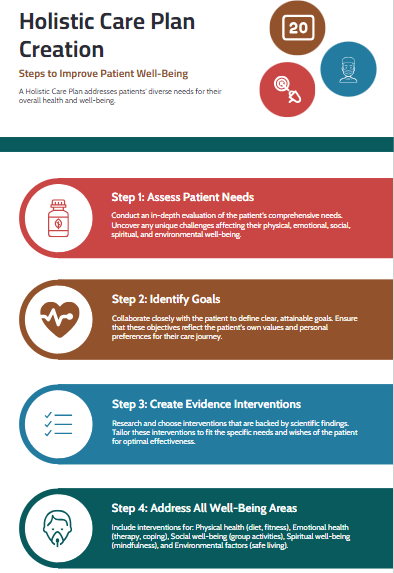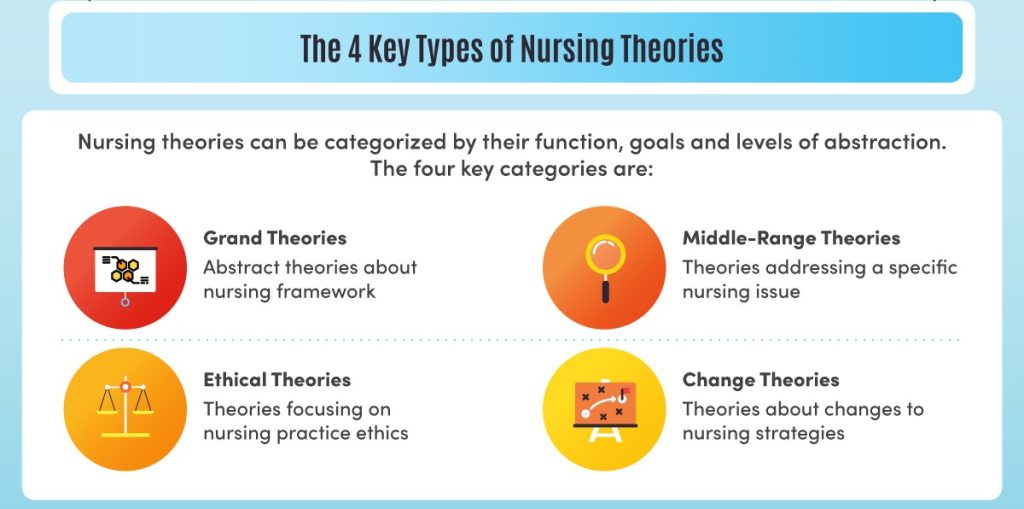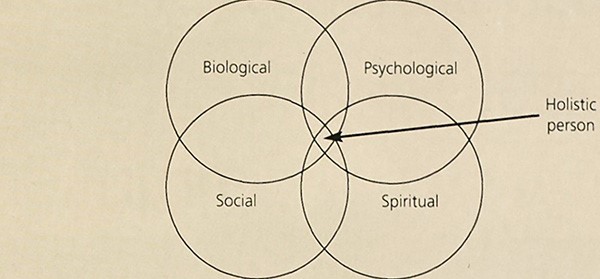
Table of Contents
The field of nursing is constantly evolving, moving beyond simply treating symptoms to encompass the well-being of the entire person. This shift towards a holistic approach is reflected in the increasing emphasis on holistic nursing in educational programs. Writing a successful holistic nursing assignment requires an understanding of this philosophy and the ability to integrate its principles into your writing.
This article provides comprehensive guidelines to help you excel in your holistic nursing assignment.
Understanding the Essence of Holistic Nursing
Holistic nursing is not merely a buzzword; it’s a paradigm shift in how we view health and care. It recognizes that each individual is a complex and interconnected system composed of physical, emotional, social, spiritual, and environmental components. A holistic nursing assignment goes beyond focusing solely on the disease; it explores the interplay of these elements and their impact on the patient’s well-being.
The Foundation of a Holistic Nursing Assignment
A strong holistic nursing assignment builds on a foundation of key concepts. These include:
- Individualized care: Recognizing that each patient is unique with diverse needs and experiences.
- Patient-centered approach: Putting the patient at the center of the care plan and involving them in decision-making.
- Mind-body-spirit connection: Acknowledging the interdependence of physical, mental, and spiritual aspects of health.
- Promoting self-care: Empowering patients to take responsibility for their health and well-being.
- Environmental factors: Considering the influence of the patient’s surroundings on their health.
Steps to Writing a Successful Holistic Nursing Assignment
To write a compelling holistic nursing assignment, follow these structured steps:
1. Understanding the Assignment Requirements:
- Carefully read the assignment prompt to fully grasp the specific expectations and desired outcomes.
- Analyze the learning objectives and identify the key concepts that need to be addressed in your writing.
- Determine the scope and focus of the assignment, ensuring it aligns with the principles of holistic nursing.
2. Selecting a Relevant Case Study or Scenario:
- Choose a case study or scenario that provides ample opportunity to demonstrate your understanding of holistic nursing principles.
- Select a case that resonates with you and allows you to explore the various facets of the patient’s experience.
- Ensure the case aligns with the assignment’s focus and provides sufficient information to support your analysis.
3. Gathering Information and Evidence:
- Utilize credible sources of information, including scholarly articles, textbooks, and reputable websites.
- Conduct thorough research to gain a deeper understanding of the patient’s condition, potential interventions, and the impact of different factors on their well-being.
- Include evidence from the case study or scenario, citing relevant data and observations to support your claims.
4. Framing a Holistic Nursing Perspective:
- Identify the key factors influencing the patient’s health, including physical, emotional, social, spiritual, and environmental aspects.
- Analyze how these factors interact and contribute to the patient’s current state of health and well-being.
- Highlight the importance of considering the patient’s individual circumstances and needs in developing a holistic care plan.
5. Developing a Holistic Care Plan:
- Develop a detailed care plan that addresses all aspects of the patient’s well-being.
- Include evidence-based interventions and strategies to support the patient’s physical, emotional, social, spiritual, and environmental needs.
- Demonstrate your understanding of how each intervention aligns with holistic nursing principles and contributes to the patient’s overall health.

6. Reflecting on the Assignment’s Impact:
- Consider the ethical and legal implications of your holistic nursing assignment.
- Reflect on the impact of your proposed care plan on the patient and their family.
- Consider the potential challenges in implementing a holistic approach and how you can address them.
7. Writing and Structuring Your Assignment:
- Organize your writing logically, following a clear structure that effectively communicates your ideas.
- Utilize headings, subheadings, and bullet points to enhance readability and guide the reader through your argument.
- Write concisely and use appropriate academic language, avoiding jargon and overly technical terms.
8. Incorporating Evidence and References:
- Support your claims with relevant evidence from research, case studies, and other credible sources.
- Use a consistent referencing style throughout your assignment, following the guidelines provided by your institution.
- Ensure accurate citation of all sources to avoid plagiarism.
9. Proofreading and Editing:
- Carefully proofread your holistic nursing assignment for grammar, punctuation, spelling, and clarity.
- Ensure your writing is free from errors and is easy to understand.
- Seek feedback from peers or instructors to gain additional perspectives and improve the quality of your work.
Tips for Excelling in Your Holistic Nursing Assignment
- Emphasize patient autonomy: Demonstrate your understanding of how patient involvement in decision-making is central to holistic nursing.
- Consider cultural perspectives: Acknowledge the influence of the patient’s cultural background on their health beliefs and practices.
- Focus on prevention and wellness: Highlight the importance of promoting health and preventing illness in a holistic approach.
- Use the language of holism: Incorporate terms like “well-being,” “interconnectedness,” and “holistic care” throughout your assignment.
- Connect theory to practice: Show how the theoretical principles of holistic nursing translate into real-world applications.

- Be creative and original: Consider alternative perspectives and develop unique solutions that reflect your understanding of holistic nursing.
Compelling Topics for Holistic Nursing Assignments
- Mind-Body Connection in Chronic Pain Management: This holistic nursing assignment topic delves into the role of holistic interventions like mindfulness, yoga, and acupuncture in managing chronic pain, exploring the connection between physical pain and mental well-being.
- Integrative Therapies for Cancer Patients: Explore how holistic nursing can enhance conventional cancer treatments by incorporating complementary therapies like massage, aromatherapy, and music therapy.
- Nutritional Interventions in Heart Disease Prevention: Analyze the impact of dietary changes and nutritional counseling in preventing heart disease, emphasizing the holistic nursing approach of addressing lifestyle factors.
- Promoting Self-Care in Nurses: This holistic nursing assignment topic examines the importance of self-care practices for nurses to combat burnout and maintain their own well-being, ensuring they can provide the best holistic care for their patients.
- Ethical Considerations in Holistic Nursing: Discuss the ethical challenges faced by nurses when integrating alternative therapies and ensuring informed consent, highlighting the principles of holistic nursing in decision-making.
- The Role of Spirituality in End-of-Life Care: This holistic nursing assignment topic explores the importance of addressing spiritual needs and providing compassionate care to patients facing end-of-life, demonstrating the core values of holistic nursing.
- Developing a Holistic Care Plan for a Specific Patient Population: This assignment would involve creating a comprehensive care plan tailored to the specific needs of a chosen patient population, incorporating holistic principles like mindfulness, nutrition, and exercise.
- The Impact of Environmental Factors on Health: Analyze the role of holistic nursing in addressing environmental factors that impact health, such as air pollution, access to green spaces, and social determinants of health.
These holistic nursing assignment topics will provide students with a comprehensive understanding of the holistic nursing philosophy and its practical applications in various healthcare settings.
Avoiding Common Pitfalls in Writing a Holistic Nursing Assignment
Holistic nursing is a philosophy that emphasizes the interconnectedness of the physical, mental, emotional, and spiritual aspects of a patient’s well-being. When tackling a holistic nursing assignment, it’s easy to get caught in the intricate web of concepts and fall into common pitfalls. However, by understanding these pitfalls and adopting proactive strategies, students can craft impactful and insightful assignments that truly embody the holistic approach.
Pitfall 1: Overlooking the Biopsychosocial-Spiritual Framework
A central tenet of holistic nursing is the biopsychosocial-spiritual framework, which recognizes the complex interplay of various dimensions in a patient’s life. A common pitfall in a holistic nursing assignment is failing to consider all these dimensions while focusing primarily on the physical aspects of care.
How to Avoid:
- Integrate the framework: When analyzing a case study or discussing a holistic nursing concept, explicitly mention how each dimension – biological, psychological, social, and spiritual – contributes to the patient’s overall health and well-being.
- Ask questions: Consider questions like: How does the patient’s social environment impact their health choices? Are there any mental health concerns that need to be addressed? What are the patient’s spiritual beliefs and how do they influence their approach to illness?
Pitfall 2: Neglecting the Patient’s Voice and Perspective
Holistic nursing prioritizes patient-centered care, meaning the patient’s needs and preferences are paramount. A common pitfall is presenting a one-sided view of the patient’s experience without truly engaging with their perspective.
How to Avoid:
- Emphasize patient agency: In your holistic nursing assignment, focus on how the patient actively participates in their care.
- Use direct quotes: If the assignment allows, include direct quotes from the patient (if available) to demonstrate their perspective and voice.
- Reflect on the patient’s story: Instead of simply stating facts, reflect on how the patient’s story, including their values, beliefs, and lived experiences, shapes their health journey.
Pitfall 3: Lack of Critical Analysis and Depth
While providing a comprehensive overview of holistic nursing concepts is important, simply listing them without analysis is inadequate. Another pitfall is lacking critical analysis and depth in exploring the application of holistic principles.
How to Avoid:
- Go beyond surface-level descriptions: Avoid merely stating facts and instead engage in critical analysis. For example, instead of simply mentioning “meditation,” discuss how it could be used to address a specific patient’s stress or anxiety.
- Connect theory to practice: Demonstrate how the concepts you are discussing are relevant to real-world practice. Use examples to illustrate how holistic principles are applied in different clinical settings.
- Engage in ethical considerations: Explore the ethical implications of implementing holistic nursing principles. For example, discuss the challenges of integrating different cultural beliefs and practices into patient care.
Pitfall 4: Neglecting the Impact of Social Determinants of Health
Holistic nursing recognizes that health is not solely determined by individual factors but also by social determinants of health (SDOH). A common pitfall is failing to consider the influence of SDOH on a patient’s health outcomes.
How to Avoid:
- Integrate SDOH into your analysis: Analyze how factors like poverty, lack of access to healthcare, and social isolation contribute to a patient’s health challenges.
- Explore upstream interventions: Consider how interventions addressing the root causes of health disparities, rather than just treating symptoms, can be implemented.
- Advocate for social justice: Recognize that advocating for policies and practices that promote equity and access to healthcare is crucial to achieving holistic well-being.
Pitfall 5: Lack of Reflection and Personal Growth
Holistic nursing assignments offer valuable opportunities for personal growth and reflection. A common pitfall is failing to reflect on your own biases and values and how they might impact your understanding of holistic nursing.
How to Avoid:
- Engage in self-reflection: Take time to critically examine your own biases and values. Consider how they might influence your perceptions of patients and your approach to care.
- Seek feedback: Request feedback from peers, instructors, or mentors on your holistic nursing assignment. This can help identify areas where your understanding can be enhanced.
- Connect your learning to your personal growth: Reflect on how your understanding of holistic nursing has impacted your own well-being and your approach to life in general.
Pitfall 6: Failing to Connect with Relevant Resources
A holistic nursing assignment should be grounded in evidence-based practice. A pitfall is overlooking available resources that can provide valuable insights and support your arguments.
How to Avoid:
- Consult reputable sources: Utilize peer-reviewed journals, professional organizations, and credible websites to gather relevant research, guidelines, and best practices in holistic nursing.
- Use diverse resources: Explore a variety of resources, including books, articles, videos, and podcasts, to gain a multifaceted understanding of the topic.
- Cite your sources: Properly cite all sources to demonstrate the credibility of your information and avoid plagiarism.
Pitfall 7: Ignoring the Importance of Communication
Effective communication is essential in holistic nursing. A common pitfall is failing to consider the different aspects of communication in your holistic nursing assignment.
How to Avoid:
- Analyze communication strategies: Discuss how different communication techniques, such as active listening, empathy, and cultural sensitivity, can enhance patient-provider relationships.
- Highlight the role of nonverbal communication: Recognize the importance of nonverbal cues, such as body language and facial expressions, in conveying empathy and understanding.
- Explore the impact of communication barriers: Consider the potential impact of communication barriers, such as language differences or cultural misunderstandings, and how they can be overcome.
Successfully navigating a holistic nursing assignment requires careful attention to the intricate aspects of holistic care. Understanding and avoiding the common pitfalls discussed above will enable students to write assignments that demonstrate a deep understanding of the holistic approach, its application in real-world scenarios, and its potential to improve patient well-being. Remember, a holistic nursing assignment is not just an academic exercise, it’s an opportunity to explore the philosophy of holistic care, develop critical thinking skills, and grow as a compassionate and effective caregiver.
Holistic Nursing Assignment FAQs
Holistic nursing is a growing field, and students are increasingly choosing to specialize in this approach to patient care. If you’re considering a holistic nursing assignment, you might have questions about what it entails. Here are some of the most frequently asked questions about this type of assignment:
1. What is a holistic nursing assignment?
A holistic nursing assignment focuses on treating the whole person, not just their physical symptoms. This means considering the patient’s mental, emotional, social, and spiritual well-being in addition to their physical health.
Holistic nursing assignments often involve working with patients who have chronic illnesses, mental health issues, or complex medical conditions. They may also involve working in specialized settings such as hospice or palliative care.
2. What are the benefits of a holistic nursing assignment?
There are many benefits to choosing a holistic nursing assignment. These benefits include:
- Developing a deeper understanding of patient needs: By considering the whole person, holistic nurses can develop a more comprehensive understanding of their patients’ needs. This allows them to provide more personalized and effective care.
- Building stronger patient relationships: Holistic nursing fosters a deeper connection between nurses and patients. This leads to greater trust and communication, which can improve patient outcomes.
- Promoting patient empowerment: Holistic nursing emphasizes patient autonomy and self-care. This empowers patients to take an active role in their health and well-being.
- Fostering a more fulfilling nursing experience: By focusing on the whole person, holistic nurses can find their work more rewarding and meaningful.
3. What kind of skills are required for a holistic nursing assignment?
Holistic nursing requires a unique set of skills, including:
- Strong communication and interpersonal skills: Holistic nurses need to be able to effectively communicate with patients, families, and other healthcare professionals.
- Active listening and empathy: Nurses in holistic assignments must be able to listen attentively to their patients and understand their perspectives.
- Knowledge of complementary and alternative therapies: Holistic nurses should be familiar with a range of non-traditional therapies, such as aromatherapy, massage therapy, and meditation.
- Ability to work independently and as part of a team: Holistic nurses may need to work autonomously, but they also need to be able to collaborate with other healthcare professionals.
4. How can I prepare for a holistic nursing assignment?
If you’re interested in a holistic nursing assignment, there are a few things you can do to prepare:
- Take courses in holistic nursing or complementary and alternative therapies.
- Volunteer at a hospice or palliative care facility.
- Seek out mentors who are experienced in holistic nursing.
- Develop your own personal practices for self-care and mindfulness.
5. What are some common misconceptions about holistic nursing assignments?
- Holistic nursing is only for patients with chronic illnesses. While holistic nursing is often used with patients who have complex medical conditions, it can benefit all patients.
- Holistic nursing is just about alternative therapies. While alternative therapies can be part of a holistic approach, they are not the sole focus. Holistic nursing incorporates conventional medical practices alongside these alternative therapies.

A holistic nursing assignment can be a rewarding and fulfilling experience. It offers the opportunity to make a real difference in the lives of your patients by addressing their physical, mental, emotional, and spiritual needs. If you’re interested in learning more about this type of assignment, don’t hesitate to ask your mentors or instructors for guidance. By developing your knowledge and skills, you can be well-prepared to take on a holistic nursing assignment and make a positive impact on the lives of your patients.
Final Thoughts
A successful holistic nursing assignment goes beyond merely describing a patient’s condition or presenting a standard care plan. It showcases your understanding of the interconnectedness of physical, emotional, social, spiritual, and environmental factors that influence a patient’s health. By embracing the principles of holistic nursing and applying them to your writing, you can create assignments that demonstrate your commitment to delivering patient-centered, individualized, and compassionate care.
Remember, writing a holistic nursing assignment is not just an academic exercise; it is a powerful tool for developing your critical thinking skills, deepening your understanding of human experience, and shaping your future as a holistic nurse.
Get Customized Nursing Assignment Writing Help
At Nursing Papers, we provide the best help with nursing assignments to enable you get through the process of assignment writing seamlessly. Our service covers topic suggestion, assignment writing, proofreading, editing, formatting and plagiarism removal. Besides, offer assistance with a wide range of nursing assignments including essays, research papers, case studies and dissertations.







